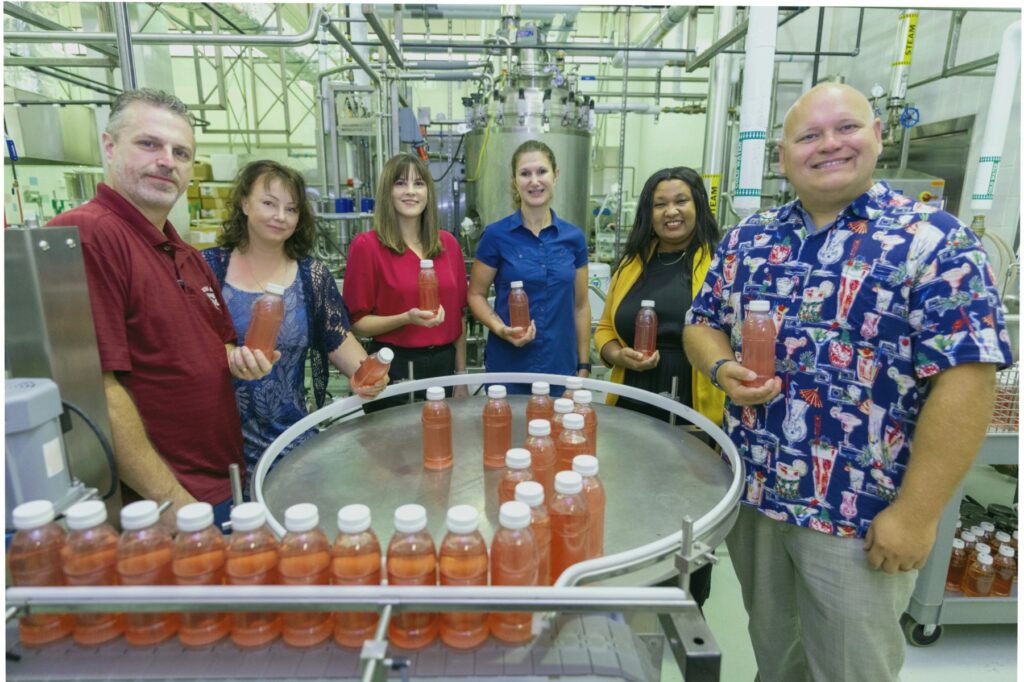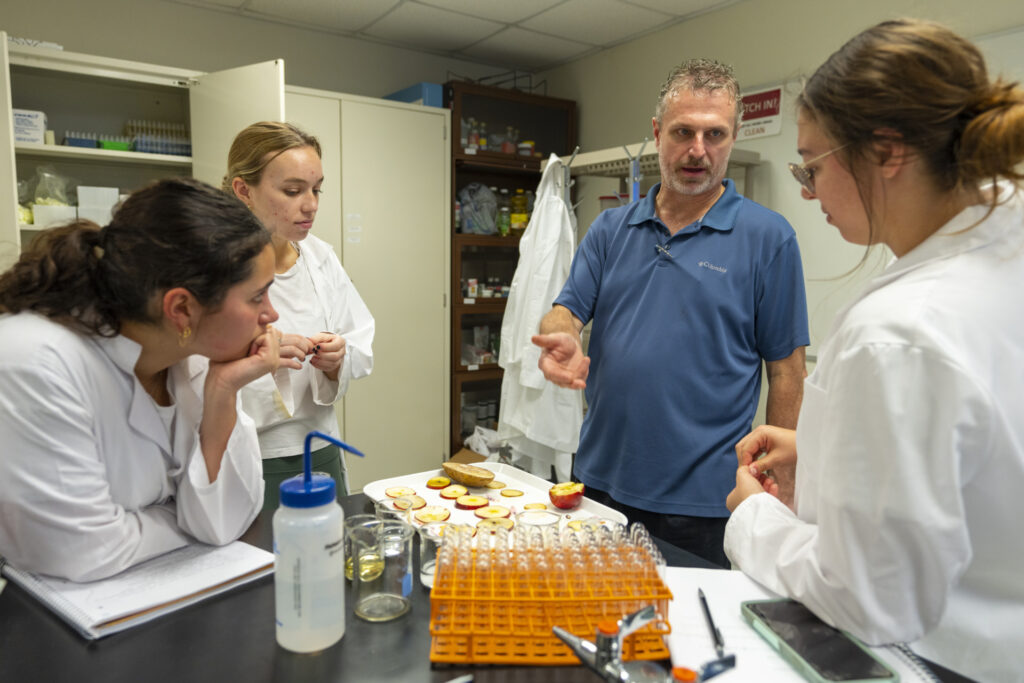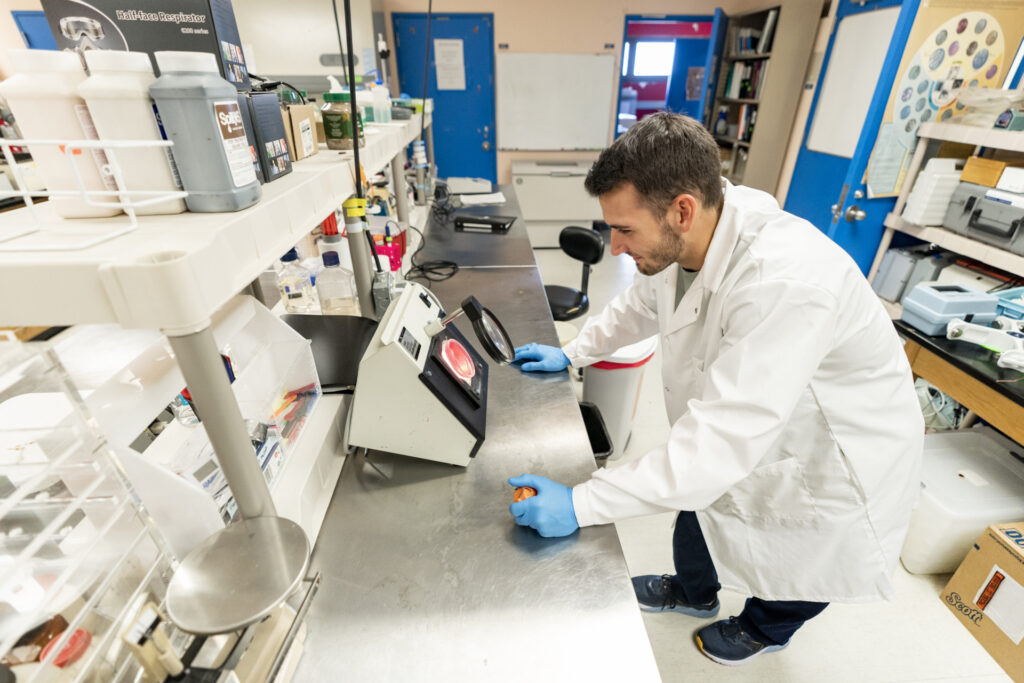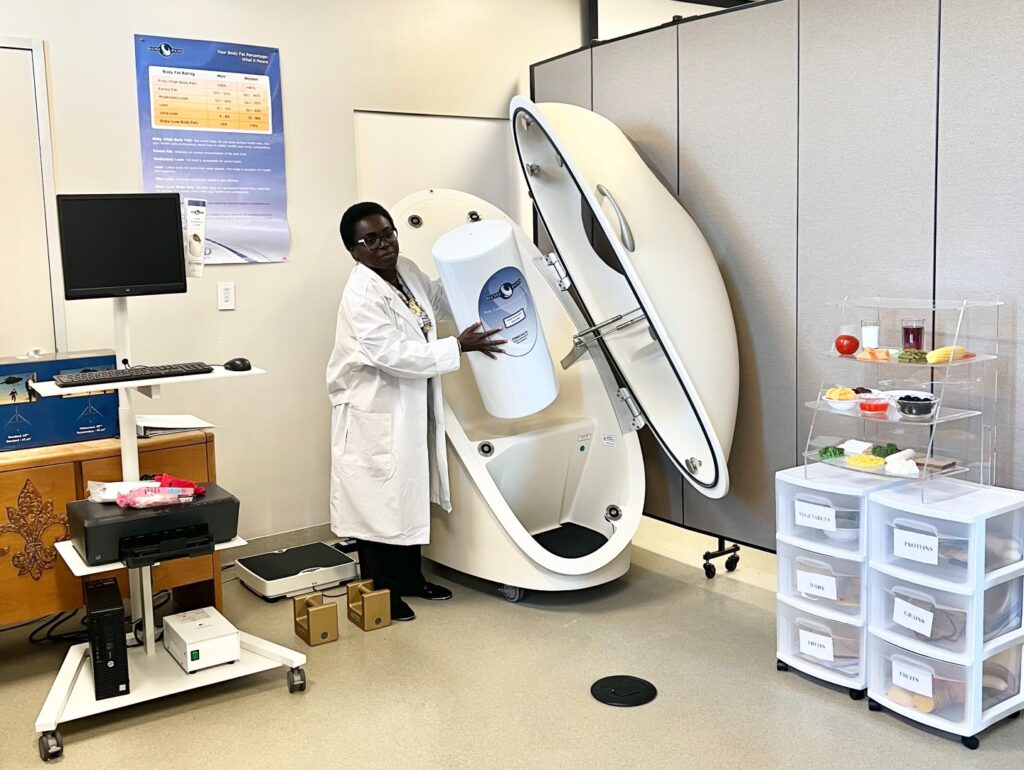Texas A&M AgriLife project to focus on chronic disease prevention
National Institute of Food and Agriculture-funded research and education project will promote improved diet, nutrition
Improving eating patterns and helping prevent chronic disease is the focus of a new Texas A&M AgriLife Research project funded by the U.S. Department of Agriculture’s National Institute of Food and Agriculture, NIFA.
The project, which integrates research and educational strategies, received more than $1 million in funding from NIFA. It was conceived in response to the institute’s Food Safety, Nutrition and Health Program Area for addressing diet, nutrition and chronic disease prevention.

Susanne Talcott, Ph.D., AgriLife Research professor in the Department of Food Science and Technology in the Texas A&M College of Agriculture and Life Sciences, Bryan-College Station, is principal investigator for the project.
Other co-investigators are Robert Strong, Ph.D., an associate professor in the Department of Agricultural Leadership, Education and Communications, and Stephen Talcott, Ph.D., professor in the Department of Food Science and Technology, both within the college; Janet Antwi, Ph.D., assistant professor of nutrition and dietetics at Prairie View A&M University; and Ra’sheedah Richardson, Ph.D., director of educational development and recognition at the Texas A&M Center for Teaching Excellence.
Additionally, Shannon Schmidt, Ph.D., and Rebecca Creasy, Ph.D., both in the Department of Food Science and Technology, will be involved in the project. Schmidt will serve as student coordinator and Creasy will provide overall project support.
“This project will investigate and assess food science and nutrition research to improve and sustain educational opportunities for teachers and older students,” Talcott said. “Some target groups for the scientific knowledge to be generated through the project are the scientific community, teachers, high school students and college undergraduate students interested in science-based career opportunities with a major focus on food sciences.”
She said the food processing equipment and analytical instrumentation within the National Center for Electron Beam Research at Texas A&M will be used for both chemical analysis and hands-on experience with the pilot-level processing of functional foods and ingredients. This will include the development of prebiotic functional beverages, sauces and jellies.
“This project is different from others in that it will engage teachers and students in worthwhile food science and nutrition research, said Susanne Talcott. “Simultaneously, it will help create high-impact learning experiences to be shared with high school and college students interested in food science.”
Project benefits and outreach
The project will provide information on the role of the intestinal microbiome in health and disease and how prebiotic functional foods may mitigate a dysfunctional intestinal microbiota.

In the process, the scientists will offer hands-on research opportunities for undergraduate and graduate students and professional development for high school science and career and technology education teachers.
The teachers will be able to engage in inquiry-based learning and collaborate with others in their subject areas from around the state, while the students learn research, critical thinking and problem-solving skills and are able to explore different careers.
Experiential learning modules, student activity video modules, and a website of downloadable modules for teachers and students will help students tie in with a network of researchers and project participants and access scientific presentations and peer-reviewed publications.
The science behind the nutrition research
Polyphenol-rich diets have been associated with increased resilience against obesity-associated chronic diseases. Studies show intestinal obesity-associated imbalance in microbial activity may reduce the body’s ability to effectively metabolize polyphenols. This inability constitutes a disadvantage for a significant segment of the population needing the positive health benefits of polyphenols.
Tannins — polyphenols sometimes called plant polyphenols — have antioxidant properties, which research has found can lower total cholesterol, reduce blood pressure and stimulate the immune system. Talcott said recent human clinical studies show that, upon consumption, systemic levels of tannin metabolites are significantly lower in obese individuals as compared to lean individuals, which may limit their health benefits.
The project will provide crucial insights into polyphenol-microbiome interactions through in vitro, animal and human clinical studies.
“We intend to evaluate the interactions between microbial composition, macromolecular polyphenols and metabolic signatures in anaerobic fermentations,” Talcott explained. “We will also evaluate macromolecular polyphenols with enzymatic and probiotic strategies in a randomized, placebo-controlled, double-blinded human clinical trial.”
Teaching and training opportunities
“The ability to invite Texas public school science and career-technology teachers into this research and the resulting conversation is a powerful opportunity,” Richardson said. “Our goal is to partner with teachers in connecting classroom concepts and content to real-world issues and applications.”

She said this will serve to enhance cutting-edge research on plant compounds and interactions with the intestinal microbiome, as well as bring food science and technology into high school classrooms.
Richardson said the summer research experience will provide science and career technology teachers with opportunities to share concepts and content and design classroom laboratory activities and processes from the perspective of firsthand research experience.
She said this aspect of the project is particularly significant in that many high schools in Texas and elsewhere do not have food science programs. Additionally, many students are not familiar with food science and technology majors in college or possible career opportunities.
“Ironically, the Texas food industry is the second largest in the country with countless technical and nontechnical attractive career opportunities,” Richardson said.
Talcott added that while many high school and undergraduate students are unaware of the career opportunities available to them within food science, job openings related to this field actually outpace the number of food science graduates in Texas and around the world.
“With competitive salaries and high demand for trained professionals in the field increasing, the study team is hopeful that undergraduate students will discover food science career options that spark their curiosity,” she said.
Strong, who investigates agricultural AgriLife Extension stakeholder impacts of cutting-edge innovation and technology adoption, such as artificial intelligence, will collaborate with Richardson to implement the educational program for students and teachers. He will also provide leadership for program assessment and disseminating project impacts.

Antwi will lead efforts to ensure the recruitment and retention of underrepresented undergraduate students on the Prairie View A&M University, PVAMU, campus. In addition to training students, she will supervise the students in their correspondence on the Texas A&M University campus during the summer semester and facilitate seminars and workshops for PVAMU students.
“We will draw recruitment and retention plans to start the project,” Antwi said. “Students will be recruited for training and research capacity building to investigate the use of probiotic strains to produce additional beneficial activities of hydrolysable tannin metabolites.”
Stephen Talcott will provide his expertise toward helping develop high-impact, hands-on training to prepare the next generation of scientists for a career in the food industry.
“We are fortunate to have world-class food analytical capabilities in the Department of Food Science and Technology that allow us to investigate human metabolism of bioactive plant compounds for our project,” he said. “These integrate food science, analytical chemistry and molecular nutrition in relation to the chemical markers of food intake and their impact on human health. We also have a new ‘pilot’ food processing facility in the eBeam Center that allows students to gain practical experience for future careers in the food industry.”
Other teaching and training aspects of the project will include summer camps for high school students, developing sustainable learning communities and providing grade-adaptable high-impact learning activities and lesson plans.
The project will also provide workshops and training activities for high school teachers and undergraduate students, as well as consulting and counseling for teachers, high school students, graduate students and postdoctoral students.


